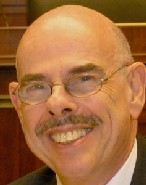House Passes FCC Process Reform Act
March 27, 2012. The House passed the HR 3309 [LOC | WW], the "Federal Communications Commission Process Reform Act of 2012". The vote on final passage was 247-174. See, Roll Call No. 138. Republicans voted 235-0. Democrats vote 12-174.
HR 3309 is a huge and complex bill that pertains to decision making processes at the Federal Communications Commission (FCC), including for rulemaking proceedings, antitrust merger reviews, and other adjudications. It adds a new Section 13 to the Communications Act of 1934. The bill contains numerous provisions that would increase transparency. However, it leaves untouched many practices that decrease transparency. Also, it would decrease transparency by allowing Commissioners to meet in secret.
The Senate with a Democratic majority, and Sen. John Rockefeller (D-WV) as Chairman of the Senate Commerce Committee (SCC), is unlikely to take any action on this bill. Whether a Republican Senate in the future might is another matter.
This article covers the legislative history of the bill, the debate in the House on March 27, and reaction to House passage. See also, related stories in this issue:
- Summary of Amendments to HR 3309 Approved or Rejected by the House
- House Rejects Amendment Regarding Warning Labels for Surveillance Risks
- House Rejects Amendment Regarding Regulation of Political Speech
- House Rejects Motion Pertaining to Employer Demands for Employee Passwords for Social Networking Sites
- Summary of HR 3309 As Passed by the House
- Commentary: FCC as an Agent of the Congress
Legislative History. The House process in passing this bill has long, open and methodical. The House Commerce Committee (HCC) held a hearing on May 13, 2011, at which it heard testimony from FCC Commissioners on FCC reform. See, HCC web page with hyperlinks to prepared testimony and archived webcast.
The HCC then released a discussion draft on June 14, 2011. The HCC held a second hearing on June 23, 2011, for outside witnesses. See, HCC web page with hyperlinks to prepared testimony and archived webcast.
Rep. Greg Walden (R-OR), the Chairman of the HCC's Subcommittee on Communications and Technology (SCT) introduced this bill on November 2, 2011.
The HCC's SCT amended and approved the bill on November 9, 2011. The full HCC held a mark up session on March 6, 2012. See, stories titled "House Commerce Committee Approves FCC Reform Bills", "Amendment by Amendment Summary of Mark Up of HR 3309", and "Summary of HR 3309, the FCC Process Reform Act " in TLJ Daily E-Mail Alert No. 2,346, March 5, 2012.
On March 26 the House Rules Committee (HRC) adopted a rule for consideration of HR 3309 that made in order numerous amendments offered by Democrats.
The full House amended and passed this bill on March 27, 2012. The vote was a nearly straight party line vote. No Republicans voted against the bill. Only 12 Democrats voted for it: Rep. John Barrow (D-GA), Rep. Dan Boren (D-OK), Rep. Henry Cueller (D-TX), Rep. Joe Donnelly (D-IN), Rep. Kathy Hochul (D-NY), Rep. Jim Matheson (D-UT), Rep. Mike McIntyre (D-NC), Rep. William Owens (D-NY), Rep. Colin Peterson (D-MN), Rep. Mike Ross (D-AR), Rep. Kurt Schrader (D-OR), and Rep. Heath Shuler (D-NC).
Floor Debate. Rep. Walden stated in the House that "Communications and technology companies and the public deserve a more transparent and responsive government agency, and that's exactly what the legislation before us now would accomplish, bringing transparency, bringing accountability to the" FCC.
Rep. John Dingell (D-MI), a senior member of the HCC, and a former Chairman, spoke in the House in opposition to the bill. He complained that it "would take the FCC outside of the Administrative Procedure Act and make it subject to a unique set of procedural requirements", and that this "will bring disastrous results". He added that this is a "silly bill" that has "no future in the Senate".
Rep. Henry Waxman (D-CA), the ranking Democrat on the HCC stated in the House that "This bill would not reform the FCC. It would disable it."
Rep. Dan Webster (R-FL) stated in the House that this bill "would change the process the FCC must follow in issuing regulations and limit the agency's ability to set conditions on transactions relating to corporate mergers and acquisitions."
 Rep. Webster (at left), who is a
member of the HRC, said that the bill "would require the FCC to be more transparent and
methodical in determining whether to intervene in the communications marketplace in dealing
with customers and regulated parties, and in reviewing transactions."
Rep. Webster (at left), who is a
member of the HRC, said that the bill "would require the FCC to be more transparent and
methodical in determining whether to intervene in the communications marketplace in dealing
with customers and regulated parties, and in reviewing transactions."
Also, "Before it starts intervening, the FCC should make sure it has a full understanding of the state of competition and current technologies. By requiring the FCC to be more transparent, to find a market failure before proposing regulations, and to conduct cost-benefit analyses before adopting rules, H.R. 3309 helps promote jobs, investment, and innovation in one of the few sectors still firing on all cylinders in this economy."
"In particular, the bill prohibits the FCC from coercing parties to accept concessions, such as network neutrality obligations, as a condition of approving their mergers. Such conditions are typically unrelated to the specifics of the transaction and involve requirements the FCC otherwise lacks the policy justification or legal authority to impose. They also chill transactions that might otherwise advance the economy, and impose unnecessary costs on businesses."
Rep. Webster added that "The bill requires the FCC to survey the marketplace through a notice of inquiry before proposing new rules that would increase costs for customers and businesses; to establish the specific text of proposed rules before their consideration so the public and industry know what is being considered and have adequate information to provide input, much as House leadership has adopted in the layover requirement for the bills that we now hear on the floor; to identify a market failure or customer harm and conduct a cost-effective analysis before adopting economically significant rules that cost more than $100 million; to set the shot clock and schedules for issuing decisions and to report to Congress on how well it is abiding by them so the public and industry know when issues will be resolved; and to create performance measures to evaluate the effectiveness or ineffectiveness of a program that costs more than $100 million."
He concluded that "this legislation seeks to pull back the curtain on bureaucratic regulation of a sector of our economy that has provided high-tech innovation and investment, and the high-quality jobs that come with it, despite the economic down-turn."
Rep. Walden discussed the FCC's universal service proceeding. "Let me tell you part of the problem here. Last October, the agency introduced more than 100 new documents into the record of its universal service proceeding in the last few days of public comment. Giving the public as few as 2 days to comment on thousands of pages of new data isn't right."
He complained that the FCC makes decisions "in a clouded, behind-the-curtain sort of way."
He advocated the bill's shot clock provisions. He also discussed merger review procedure. "In recent years, the FCC has leveraged its authority to review transactions to accomplish unrelated policy goals and insulate its rulemakings from judicial review. Now, what does that mean? It does so through last-minute side deals with applicants that are often not disclosed until just a few days or even hours before the FCC approves a deal. One problem with these voluntary commitments is they're not voluntary."
"If you're trying to get the FCC to approve your transfer of license, the FCC, in recent years, has used that approval authority to go way beyond any statutory authority they have to issue rules in an area and they hold you hostage. Outside of the portals, we'd call it extortion", said Rep. Walden.
He also noted that some companies use this process to gain some advantage over other companies. He said that these companies "twist them at the FCC" to "get a little edge in the market".
Rep. Anna Eshoo (D-CA), the ranking Democrat on the HCC's SCT stated that "this bill guts" the FCC "requiring new onerous process requirements which will result in an Agency that's less effective, less agile, and less transparent".
 Rep. Waxman
(at right) argued that this bill "erects procedural hurdles
that make it more difficult for the FCC to protect consumers. It strips the FCC
of its power to ensure that mergers between telecommunications companies are in
the public interest. If this bill is enacted, it would stymie the ability of the
Agency to do much of anything except to produce reports for Congress."
Rep. Waxman
(at right) argued that this bill "erects procedural hurdles
that make it more difficult for the FCC to protect consumers. It strips the FCC
of its power to ensure that mergers between telecommunications companies are in
the public interest. If this bill is enacted, it would stymie the ability of the
Agency to do much of anything except to produce reports for Congress."
He argued that the FCC should not have to publish the specific language of the proposed rule in every notice of proposed rulemaking.
He argued that this bill "alters fundamentally the way in which the FCC reviews transactions to ensure that they are in the public interest. Under current law, the FCC is directed to protect the public interest when reviewing proposed mergers. This bill would curtail this authority significantly. The bill strips the FCC of its authority to require merger conditions that promote broadband adoption, require minimum broadband speeds, require the repatriation of jobs from overseas, or ensure broadband coverage in rural or low-income areas."
He also argued that the bill gives "telephone, cable, or wireless companies vast new tools to tie the Agency up in litigation for years if they don't like what the Agency is doing. It does this by making all the regulatory analyses that accompany a regulation subject to judicial review." He added that "These lawsuits, which no other Agency in government would face, could effectively paralyze the FCC."
Finally, he predicted that this bill "will not go anywhere in the other body, will not become law".
Reaction. Michael Powell, head of the National Cable and Telecommunications (NCTA), stated in a release that this bill "will promote greater transparency and predictability in Commission decision making."
He added that "The regulatory framework envisioned by this reform legislation will ensure that private enterprise can continue to invest and innovate with more consistent and precise federal government oversight."
The National Association of Regulatory Utility Commissioners (NARUC) released a statement praising some of the provisions of the bill. "Importantly, the bill requires the FCC to release specific language in proposed rules for public comment within a reasonable timeframe. The legislation also makes the important work of our several Federal-State joint boards and conferences far more efficient, allowing us to address critical consumer issues in a more timely fashion."
Tim McKone of AT&T stated in a release that this bill is a "common-sense effort to reform current FCC practices, many of which predate the agency’s current leadership. Passage by the House is a needed step forward, and is also an important signal of support for modernizing telecom regulation. It has become increasingly clear that, for America to have the world-class broadband infrastructure it needs, all of us must rethink outmoded regulations and outdated mindsets."
Joel Kelsey of the Free Press stated in a
release that this bill would "create irreversible long-term harm and tie the
hands of a federal agency charged with overseeing an increasingly consolidated
telecommunications industry".